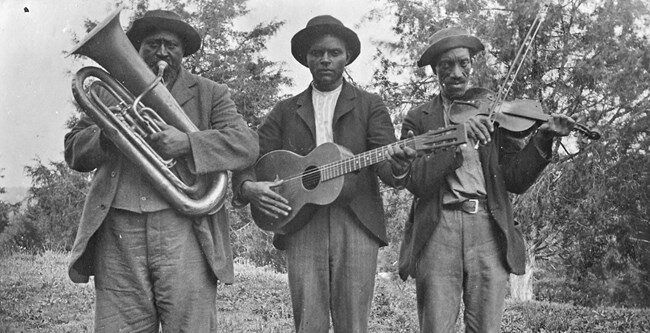Originating in the 1600s, folk music features a multitude of instruments from the banjo to the rhythm bones.
It was brought the Americas by enslaved africans during the transatlantic slave trade.
It was used to inspire and unite the black community during the time of slavery.
This serves as an ode to the sufferings of the ancestors.
Also, songs would be in protest with dissatisfied slave masters.
Mr. Bojangles was a song written by the Nitty Gritty Dirt Band.
Secular folk music was created by African Americans.
Folk music represents communities.
Also, most occasions within the community had distinct sounds.
Odetta was the voice of the civil rights movement born in the 1930s.
Folk music gave way to many other forms and styles like call and response songs and work songs.
Street vendors would eventually translate and echo the early call-and-response hollers.
The dundun is a drum used in folk music. Its hour glassed shape, 2 round heads, and leather strings running from head to head help produce different pitches.
Similarly, the bata is a small double-headed drum shaped like an hourglass with one end larger than the other usually used in religious ceremonies.
The Djembe originates from West Africa. It is a goblet-shaped drum traditionally carved from a single piece of African hardwood and topped with an animal skin played with bare hands.
Tracy Chapman was a modern day folk singer.
Her music was based around the struggles for Black women’s wages.
Folk music has many hidden messages ranging from protest songs to game songs for children. All of them played a specific role in the culture.
Folk music influenced rap, blues, and jazz genres in a multitude of ways.
Similarly, the influence of folk music in creole communities was vast, especially in Louisiana.


